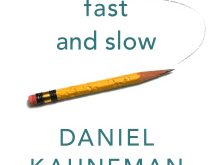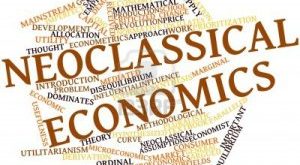Eleverna på friskolor får i regel ett högre betyg än vad de presterat på nationella proven jämfört med kommunala skolor. Särskilt stora är skillnaderna i matematik. Enligt Jonas Vlachos, nationalekonom vid Stockholms universitet, kan skillnaden bero på att fristående gymnasium har starkare skäl att sätta högre betyg. – Den enklaste förklaringen är att friskolor har starkare incitament att sätta högre betyg. De är mer beroende av elevunderlaget än vad kommunala skolor är. I...
Read More »The economics of stochastic Robinson Crusoes
The economics of stochastic Robinson Crusoes The increasing ascendancy of real business cycle theories of various stripes, with their common view that the economy is best modeled as a floating Walrasian equilibrium, buffeted by productivity shocks, is indicative of the depths of the divisions separating academic macroeconomists … If these theories are correct, they imply that the macroeconomics developed in the wake of the Keynesian Revolution is well...
Read More »Proud father (personal)
On Saturday yours truly had the great pleasure to visit a newly graduated daughter and attend the Stockholm School of Economics graduation ceremony in the Blue Hall. Congratulations Tora!
Read More »Why should economics demand what harder sciences do not?
Why should economics demand what harder sciences do not? Although economics main concern is with aggregates, there has predominated in the discipline an atomistic approach. If you want to know what consumers do, you model the individual consumer behavior and assume it represents the behavior of the typical consumer. The same applies to producers: the theory of the firm is the basis for the aggregate supply function. Moreover, it has been proposed that the...
Read More »Intuitive, appealing, and — wrong
Intuitive, appealing, and — wrong One of the main functions of System 2 is to monitor and control thoughts and actions “suggested” by System 1 … For an example, here is a simple puzzle. Do not try to solve it but listen to your intuition: A bat and ball cost $1.10. The bat costs one dollar more than the ball. How much does the ball cost? A number came to your mind. The number, of course, is 10: 10 cents. The distinctive mark of this easy puzzle is that it...
Read More »What is wrong with neoclassical economics?
What is wrong with neoclassical economics? Noah Smith writes that when yours truly and other heterodox economists criticize neoclassical economics the term “neoclassical” gets slung around quite a lot, usually as a perjorative (sic!) … The idea is that “neoclassical” econ is the dominant paradigm, and that the “heterodox” schools are competing paradigms that lost out, and were, to use Kuhn’s terminology, “simply read out of the profession…and subsequently...
Read More »Teaching economics — a question of waste and harm
Teaching economics — a question of waste and harm Amos Tversky once told me about a meeting he had attended with the foremost psychological scholars in the U.S., including Leon Festinger. At one point they were all asked to identify what they saw as the most important current problem in psychology. Festinger’s answer was: “Excessive ambitions”. In this paper I argue that this is not just the case for psychology, but for the social sciences across the board...
Read More »Vampire economics
Economics — in contradistinction to logic and mathematics — ought to be an empirical science, and empirical testing of ‘axioms’ ought to be self-evidently relevant for such a discipline. For although the economist himself (implicitly) claims that his axiom is universally accepted as true and in now need of proof, that is in no way a justified reason for the rest of us to simpliciter accept the claim. When applying deductivist thinking to economics, neoclassical economists...
Read More »Mainstream economics — an explanatory failure
Mainstream economics — an explanatory failure To achieve explanatory success, a theory should, minimally, satisfy two criteria: it should have determinate implications for behavior, and the implied behavior should be what we actually observe. These are necessary conditions, not sufficient ones. Rational-choice theory often fails on both counts. The theory may be indeterminate, and people may be irrational. In what was perhaps the first sustained criticism...
Read More »Pluralism in economics
Many mainstream economists today try to give a picture of modern economics as a pluralist enterprise. But the change and diversity that gets their approval only takes place within the analytic-formalistic modeling strategy that makes up the core of mainstream economics. You’re free to take your analytical formalist models and apply it to whatever you want — as long as you do it with a modeling methodology that is acceptable to the mainstream. If you do not follow this...
Read More » Lars P. Syll
Lars P. Syll










